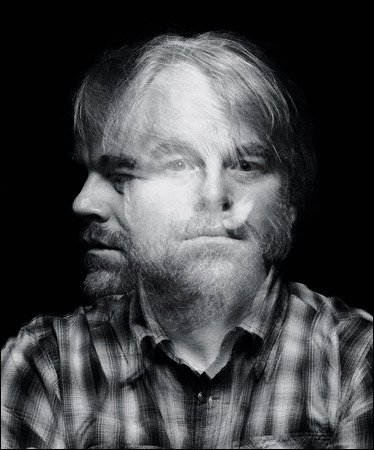
I was going to write about relationships this month, about the value of connection, with family, friends, lovers, and ultimately the world. It’s a subject that I cherish, and work with on a daily basis. And I will get to that… but first, I must address a subject that has come up recently in the news, and reminds me again how profoundly ignorant many people are about “mental” illness.
Philip Seymour Hoffman was one of my favorite actors. One has only to search his name in the credits of any film to find films worthy of watching: The humanity of his characters was revealed in each of these films. This magnificent vulnerability was, according to those who lived along side of him in the Greenwich Village neighborhood, accompanied by a humility that allowed him to move about as just another frumpily-dressed denizen. Not spoiled, nor a seeker of fame and celebrity, he pursued his art, loved his partner of many years, raised his children. And died, after decades of sobriety, of a heroin overdose.
Addiction is a “mental” illness. True. And the term “mental illness” is one that I devoutly hate, for it suggests that it is not in fact a real illness. Yet we have known for many years that depression, anxiety, addiction, and trauma have significant biological components. We can identify the markers for each in brain scans and endocrine (hormone) irregularities, and treatment options now go far beyond the symptom management of psychopharmaceuticals to exercises, diet and supplementation, as well as eastern and holistic treatments and the many somatic interventions I use and that address the underlying causes.
Yet in many of the responses to his death are cruel statements: “Glad he’s dead, someone dumb enough to use heroin needs to be gone;” “What a selfish man to leave his family behind;” “Another Hollywood spoiled brat bites the dust.” Even some of my own colleagues see his demise as inevitable, given his artistic nature, as if emotional vulnerability, instead of something wonderful, was seen as a precursor to early and tragic ends. All artists have a drink in one hand, a cigarette in the other.
While I’ll save a deeper exploration of the biology of prolonged emotional distress, and of the elements allowing for deep emotional vulnerability to exist in a way that is stable and useful, I will only say now that addiction, depression, anxiety, mania and trauma are not choices. Nor can sufferers just “get over it and move on.” Nancy Reagan was wrong when she advised “just say no,” and cruel ignorance is costing us lives. This is not to say that the one with the illness is helpless, any more than, say, someone with diabetes. Just as the diabetic can only hope to allay the progression of the illness through watching diet, exercising, monitoring insulin levels and taking needed medication, the addict addresses his or her own “maintenance issue” with interventions that, to be honest, have limited success. Mr. Hoffman was off heroin for almost a quarter of a century before he succumbed.
I’ve worked with heroic addicts, at a methadone clinic in Austin, Texas. These were not slackers, losers, people who lacked imagination, vision, or a desire to do something with their lives. There were many reasons for their addictions: some were perfectionists who gave to everyone but themselves and had no boundaries, others were hard workers who pushed past the pain of real injuries and illnesses until the pain was too much and legal treatments too expensive on their un- or underinsured salaries, and still others had family histories that twisted my usually metallic gut. And all were deeply ashamed of their addiction, which only drove them to feel the need to use even more.
So please, PLEASE, be as kind and compassionate to those with physical illness showing up as emotional distress or poor thinking as you would with those whose illnesses involve tumors and fatigue. End the shame that keeps people from getting the help they need. And if you or a loved one is suffering, a good resource to start with is the local chapter of the National Alliance on Mental Illness (NAMI).
To respond, click here. It will take you to my contact page. Feel free to write your comment as a message to me, and I’ll post when I receive. Thank you.
RESPONSES:
Is (sexual) addiction also an illness? I am wondering how the thoughts you have about compassion and shame apply here.- SB, 2/6/14 Sexual addiction? Makes me wonder, what is the specific biology behind SA? The need for the charge of the act itself, releasing Dopamine, Epinephrine etc., combined with the lack of attachment (and when I think of that I do think of developmental trauma, in particular)....yeah, I think we can start to get a sense of the biology here as well. And as with any illness, there are those who actively treat their illness, as Hoffman was able to do for the most part, until that wrap party at the end of last year, and those who don't. I think the shame piece especially impacts folks with SA, who find that the support groups often trigger the illness, not support the recovery... suggesting to me that when people still in the throes of shame gather, that they can succumb to the desire to avoid addressing shame, and instead justify their actions. Thanks, you started me thinking...